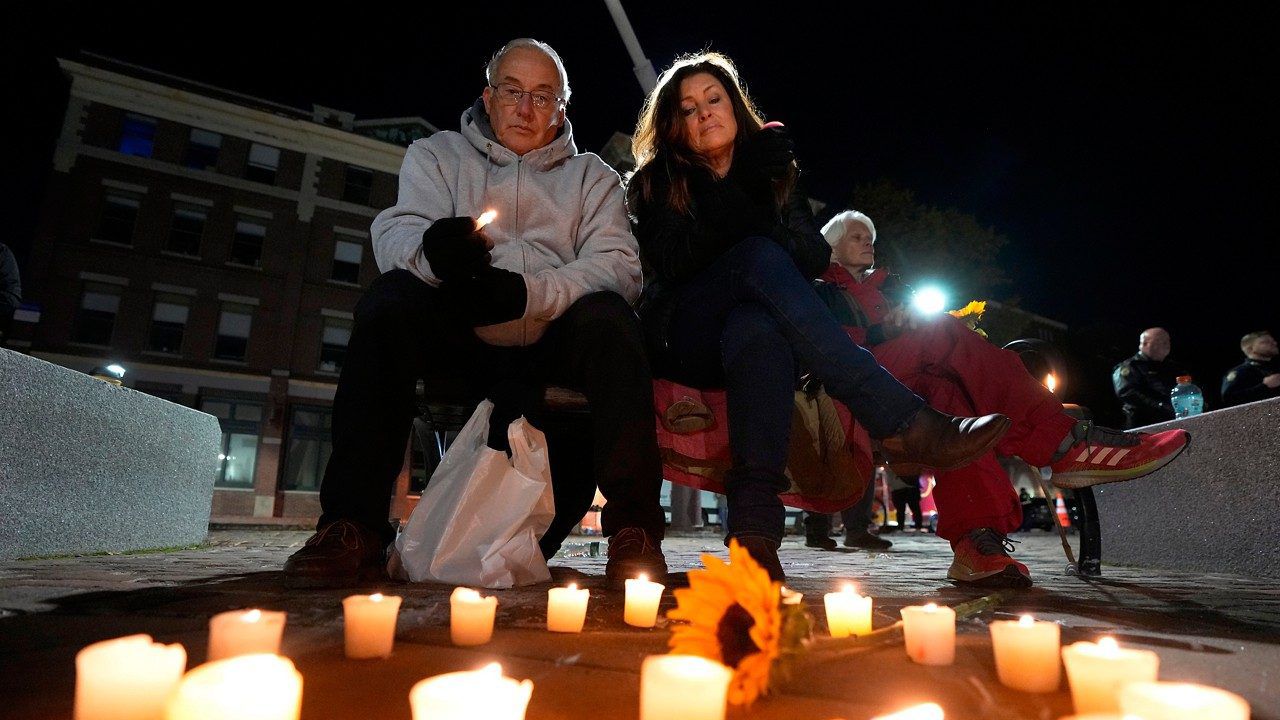An independent commission has been reviewing the events leading up to Army reservist Robert Card killing 18 people at a bowling alley and a bar in Lewiston, Maine, on Oct. 25, 2023.
Here is what the commission found in a report released Friday, and some of the reactions:
GUNS NOT SEIZED
Law enforcement should have seized Card’s guns and put him in protective custody weeks before he committed the deadliest mass shooting in state history, the commission concluded.
The commission criticized Sgt. Aaron Skolfield, who had responded to a report five weeks before the shooting that Card was suffering from some sort of mental health crisis after he had previously assaulted a friend and threatened to shoot up the Saco Armory.
The commission found Skolfield, of the Sagadahoc County Sheriff’s Office, should have realized he had probable cause to start a “yellow flag” process, which allows a judge to temporarily remove somebody’s guns during a psychiatric health crisis.
FATHER REACTS
Leroy Walker, whose son Joseph was killed in the shootings, said the commission’s finding that the yellow flag law could have been implemented — but wasn’t — reflected what victims’ families have known all along.
“The commission said it straight out: that they could have done it, should have done it,” said Walker, who is an Auburn City Council member. “What something like this really does is it brings up everything. … It just breaks the heart all over again.”
BIGGER ISSUES
Ben Gideon, an attorney representing the victims, said he felt the report focused heavily on the actions of the sheriff’s office while ignoring the broader issue of access to guns by potentially dangerous people across the state.
“I’m in agreement with the committee’s findings as far as they go, and I do think it’s a legitimate point that the Sagadahoc Sheriff’s Office could have done more to intervene,” he said. “I was a little disappointed that the committee didn’t take a wider view of the issues that start as far back as May.”
Gideon also said he hoped the report would make the shooter’s health records available to victims and the public, which it did not.
OTHER REACTION
Elizabeth Seal, whose husband Joshua was killed in the shootings, said she felt the focus of the report was “narrow.” Democratic Gov. Janet Mills, who helped assemble the panel, said its work is of “paramount importance for the people of Maine.” She said she would “carefully review” the report.
Maine State Police and the sheriff’s office did not respond to calls seeking comment.
MORE TO COME
Commission Chair Daniel Wathen said their work isn’t finished and that the interim report was intended to provide policymakers and law enforcement with key information they had learned.
“Nothing we do can ever change what happened on that terrible day, but knowing the facts can help provide the answers that the victims, their families, and the people of Maine need and deserve,” Wathen said in a statement.
The commission, led by a former chief justice of Maine’s highest court, plans to schedule more meetings and issue a final report in the summer.



